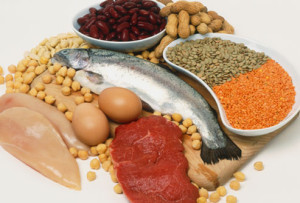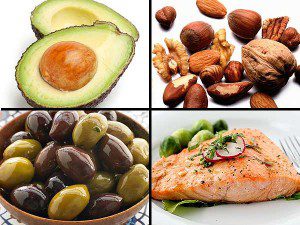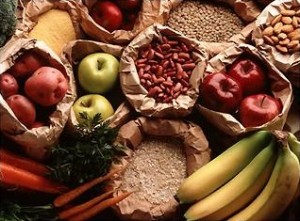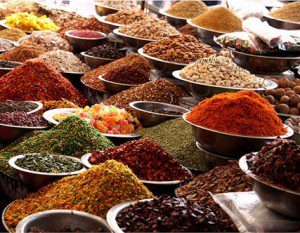By Deane Alban
Contributing Writer for Wake Up World
A diet is simply a planned way of eating. Most people go on a diet to lose weight. Some people adopt a particular diet because they have food allergies, or are eating to control their cholesterol or digestive disorders.
But few people say they are on a “brain food diet” to get smarter and develop a healthier brain! And that’s a shame, because changing the way you eat can have a huge impact on how well your brain functions.
If you eat to give your brain the optimal nutrition it needs, here is what your smart food diet will look like.
Eat Smart: Balance Your Macronutrients
“Eat a balanced diet” we’re all told, but what does this mean? No one seems to agree and the experts change their recommendations all the time.
When I refer to a balanced diet, I mean one that contains adequate amounts of the three macronutrient groups – carbohydrates, protein and fat. Our brains need the nutrients in all three of these groups, preferably at every meal. Eaten together, this balance minimizes wild dips in blood sugar levels, which can wreak havoc with your mental state. Individually, here’s what each of these food groups can do for your brain.
Protein
Your brain creates hundreds of chemicals called neurotransmitters. Examples of neurotransmitters include dopamine, serotonin, and endorphins. These compounds enable brain neurons to communicate with each other. Neurotransmitters are largely made up of amino acids, which come from protein.
 Not having enough protein means your brain won’t have the building blocks it needs to create the proper balance of neurotransmitters. This can lead to brain fog and problems with concentration, tiredness, depression, anxiety, mood, and memory loss.
Not having enough protein means your brain won’t have the building blocks it needs to create the proper balance of neurotransmitters. This can lead to brain fog and problems with concentration, tiredness, depression, anxiety, mood, and memory loss.
The healthiest sources of protein are grass fed meats, poultry, wild fish, dairy, eggs, whey protein and legumes. Most Americans get adequate protein except for possibly picky eaters, vegetarians that are not careful about their protein intake, or people with poor digestive assimilation.
Fats
Your brain is largely made up of fat – 60% by volume. So if anyone calls you a “fat head”, it’s actually true!
It’s not an exaggeration to say that the quality of your brain cells depends on the quality of the fats you eat. That is why you should focus on brain healthy foods high in good fats such as avocados, olives, nuts, and seeds, and fatty fish like salmon, tuna, or mackerel. Be sure to buy genuine wild-caught fish, not farm raised.
 Olive oil is great to use on salads but for cooking stick with coconut oil or butter. Surprisingly, these can withstand heat without turning into transfats so are much healthier for cooking than the standard vegetable oils!
Olive oil is great to use on salads but for cooking stick with coconut oil or butter. Surprisingly, these can withstand heat without turning into transfats so are much healthier for cooking than the standard vegetable oils!
The omega-3 fatty acids found in these are particularly helpful for your brain. They can help with mental clarity, concentration and focus, while preventing mood swings and depression.
Getting some healthy fat at every meal keeps your blood sugar levels stable and keeps you satisfied longer.
Carbohydrates
Carbohydrates have gotten a bad rap. Just as there are good fats and bad fats, there are good and bad carbs as well.
Your brain can’t store energy, so it depends on a continual supply of glucose released from carbohydrates. Complex carbohydrates, such as those found in vegetables and fruits give your brain the sustained energy it needs.

There is growing evidence that grain of all kinds may be harmful to your health, and that wheat – even whole wheat – is the worst of all.
Don’t be reluctant to eat starchy vegetables like potatoes, yams, carrots, winter squash or beets. They play a big part in a healthy diet. They’ll help your blood sugar stay stable and keep you from getting hungry while delivering the steady stream of glucose that your brain needs. And contrary to what you may have heard, they won’t make you gain weight.
;
Antioxidant-Rich Fruits and Vegetables
Simple carbohydrates such as sugar or white flour cause wild fluctuations in blood sugar levels — first up and then down. When your brain’s level of glucose is low, either from not enough good carbs or too many bad ones, it can lead to mood swings, irritability, tiredness, mental confusion and impaired judgement. This is why people on low carb diets often aren’t a lot of fun to be around.
Your brain is highly susceptible to free radical damage because it uses so much oxygen. Foods high in antioxidants are usually the most colorful fruits and vegetables. The U.S. Department of Agriculture’s list of top ten antioxidants contains six types of berries. So eat plenty of berries knowing they are some of the best brain foods around, and they happen to be delicious as well.
Eat plenty of foods rich in vitamin C and vitamin E. These two nutrients have been found to work synergistically to be particularly helpful in reducing free radical damage. The best sources of vitamin C are citrus fruits and highly colorful peppers. Vitamin E is plentiful in nuts and seeds, and the oils derived from them.
 Be sure to buy the freshest produce you can find, then store it properly. You’d be surprised at how you can improve the nutritional content by how you prepare and store it. Did you know that some foods are more nutritious cooked than fresh?
Be sure to buy the freshest produce you can find, then store it properly. You’d be surprised at how you can improve the nutritional content by how you prepare and store it. Did you know that some foods are more nutritious cooked than fresh?
Spice it Up
Herbs and spices are another category of foods for the brain. Be sure to cook with ginger, turmeric, saffron, sage, paprika and chili. These work by acting as powerful antioxidants and reducing inflammation.
Bake with cinnamon or sprinkle it on everything from applesauce to oatmeal. Even just a whiff of this spice is believed to stimulate your brain.
“Brain Drains”
There are some foods that are a drain on your brain. Caffeine and sugar seem to lessen the effects of some neurotransmitters in the brain. Alcohol, if consumed beyond moderation, can do the same.
Unhealthy trans fats found in fried, fast, and processed foods are so unhealthy, they are actually banned in some places. This type of fat has been shown to impair memory, cause brain atrophy, and increase the risks of dementia and Alzheimer’s.
Eating too much salt seems to correlate with reduced cognitive performance too. Food additives such as MSG and NutraSweet are believed to contribute to migraines, autism, ADD and Alzheimer’s disease.
 Your Brain Needs Water
Your Brain Needs Water
While water is not a brain “food”, no discussion about the optimum brain diet would be complete without mentioning it. Your brain is 80% fluid. Being dehydrated actually shrinks your brain, and temporarily impacts how well it works.
Fortunately, once you get rehydrated your brain function should get back to normal quickly. However, chronic dehydration is suspected to be responsible for premature aging and a host of health problems including Alzheimer’s.
To figure out how much water you need each day, take your weight in pounds and divided by 2. That is the roughly the number of ounces you need to drink each day under normal circumstances. Learn exactly how much water you should be drinking here.
Eating a healthy diet of lean protein, healthy fats and complex carbohydrates, seasoned with the right spices, is the best diet you can feed your brain to keep it in top form now, and ward off potential brain problems in the future.
Sources:
- Brain Food: How to Eat Smart at LiveScience.com
- Brain Power: Why Proteins Are Smart at PsychologyToday.com
- The Skinny on Brain Fats at PsychologyToday.com
- High Salt, Low Activity Also Bad For Brain Health at USAToday.com
- Water on the Brain: Grey Matter Literally Shrinks Without Hydration at DailyMail.co.uk
Previous articles by Deane:
- 5 Common Food Additives That Are Toxic to Your Brain
- Coconut Oil Cures Alzheimer’s Disease: Truth or Wishful Thinking?
- 6 Common Habits that Rob You of Essential Brain Vitamins
- The ABCs of Vitamins for Memory and Brain Health
- The Toll Being Overweight Takes On Your Brain
- Work Smarter, Not Harder: Everyday Memory Improvement Tips
About the author:
Deane Alban holds a bachelor’s degree in biology and has taught and written on a wide variety of natural health topics for over 20 years. Her current focus is helping people overcome brain fog, “senior moments”, and other signs of mental decline now, and preventing Alzheimer’s and dementia in the future.
The human brain is designed to last a lifetime, but modern life takes a greater toll on the brain than most people realize. Deane teaches the best ways to keep your brain healthy and stay mentally sharp for life at her website BeBrainFit.com.

If you've ever found value in our articles, we'd greatly appreciate your support by purchasing Mindful Meditation Techniques for Kids - A Practical Guide for Adults to Empower Kids with the Gift of Inner Peace and Resilience for Life.
In the spirit of mindfulness, we encourage you to choose the paperback version. Delve into its pages away from screen glare and notifications, allowing yourself to fully immerse in the transformative practices within. The physical book enriches the learning process and serves as a tangible commitment to mindfulness, easily shared among family and friends.
Over the past few years, Wake Up World has faced significant online censorship, impacting our financial ability to stay online. Instead of soliciting donations, we're exploring win-win solutions with our readers to remain financially viable. Moving into book publishing, we hope to secure ongoing funds to continue our mission. With over 8,500 articles published in the past 13 years, we are committed to keeping our content free and accessible to everyone, without resorting to a paywall.








